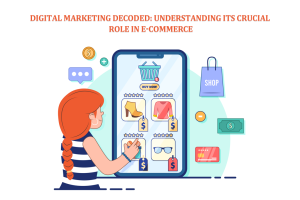Digital marketing is an extensive field that encompasses a wide range of strategies and tactics for promoting products, services, or brands through digital channels. Implementing an effective digital marketing strategy involves careful planning and execution.
Here are some of the best digital marketing strategies along with detailed descriptions on how to implement them:
Search Engine Optimization (SEO)
Search Engine Optimization (SEO) is a set of strategies, techniques, and best practices aimed at improving a website’s visibility and ranking on search engines like Google, Bing, and Yahoo. The primary goal of SEO is to enhance the organic (non-paid) search results for specific keywords or phrases relevant to a website or online content. It involves optimizing various elements on a website to make it more search engine-friendly, thereby increasing its chances of ranking higher in search results.
Implementation:
Conduct keyword research to identify relevant keywords and phrases that your target audience uses to search for products or services.
Optimize your website’s meta tags, headers, and content with the identified keywords.
Improve your website’s loading speed and mobile responsiveness.
Build high-quality backlinks from authoritative websites in your industry.
Regularly monitor and analyze your website’s performance using tools like Google Analytics and make necessary adjustments to improve your SEO.
Content Marketing
Content marketing is a strategic approach to creating and distributing valuable, relevant, and consistent content to attract and engage a clearly defined target audience. The primary goal of content marketing is to build and nurture relationships with potential customers, ultimately leading to profitable actions, such as purchases or brand loyalty. Content marketing involves the creation of a wide range of content types, including blog posts, articles, videos, infographics, ebooks, podcasts, and more. These materials are designed to inform, educate, entertain, or inspire the audience, rather than directly promote products or services.
Implementation:
Develop a content marketing strategy that aligns with your business goals and target audience.
Create high-quality, informative, and engaging content such as blog posts, articles, videos, infographics, and e-books.
Optimize your content for SEO by incorporating relevant keywords, meta tags, and headings.
Promote your content through various channels such as social media, email newsletters, and guest posting.
Measure the performance of your content using analytics tools and refine your strategy based on the insights.
Social Media Marketing
Social Media Marketing is a digital marketing strategy that utilizes social media platforms to promote products, services, or brands. It involves creating and sharing content on social media networks to engage with a target audience, build brand awareness, drive website traffic, and achieve specific marketing objectives. Social media marketing encompasses various activities, from content creation and posting to paid advertising and community management on platforms like Facebook, Twitter, Instagram, LinkedIn, Pinterest, and more.
Implementation:
Identify the social media platforms where your target audience is most active.
Create compelling and shareable content tailored for each platform.
Regularly post engaging content, including text, images, videos, and live streams.
Interact with your audience by responding to comments, messages, and mentions promptly.
Use social media advertising to reach a wider audience and drive targeted traffic.
Monitor social media metrics such as engagement, reach, and conversions to measure the effectiveness of your campaigns.
Email Marketing
Email marketing is a digital marketing strategy that involves sending commercial messages, typically via email, to a group of people with the goal of building relationships, promoting products or services, and engaging the audience. It’s a versatile and cost-effective method for communicating with both current and potential customers. Email marketing campaigns can include newsletters, promotional offers, product announcements, educational content, and more.
Implementation:
Build an email list by offering valuable incentives or gated content on your website.
Segment your email list based on demographics, interests, or past interactions.
Design visually appealing and mobile-responsive email templates.
Personalize your emails with dynamic content and personalized subject lines.
Automate email sequences based on triggers such as sign-ups, purchases, or abandoned carts.
Track and analyze email metrics like open rates, click-through rates, and conversions to optimize your campaigns.
Pay-Per-Click (PPC) Advertising
Pay-Per-Click (PPC) advertising is a digital marketing model in which advertisers pay a fee each time their ad is clicked. It’s a way to buy visits to your website rather than earning them organically through SEO or other strategies. PPC ads typically appear on search engines, social media platforms, and various websites, and they are a prominent feature of online advertising. The most common PPC advertising platform is Google Ads, but other platforms like Facebook Ads and Microsoft Advertising also offer PPC services.
Implementation:
Determine your advertising goals and select the appropriate PPC platform, such as Google Ads or Bing Ads.
Conduct keyword research to identify relevant keywords for your campaigns.
Create compelling ad copy that includes the identified keywords and a strong call-to-action.
Set a budget for your campaigns and select the appropriate bidding strategy.
Monitor your campaigns regularly, analyze the performance metrics, and adjust your bids and keywords as needed to optimize results.
Remember, the implementation of these strategies may vary depending on your specific business goals, target audience, and industry. It’s important to continuously monitor and adapt your strategies based on data and insights to achieve the best results.
The successful implementation of digital marketing strategies involves thorough planning, ongoing optimization, and a deep understanding of your target audience and market. It’s essential to monitor and adapt your strategies to achieve your specific goals, whether it’s increased brand awareness, lead generation, or online sales.







